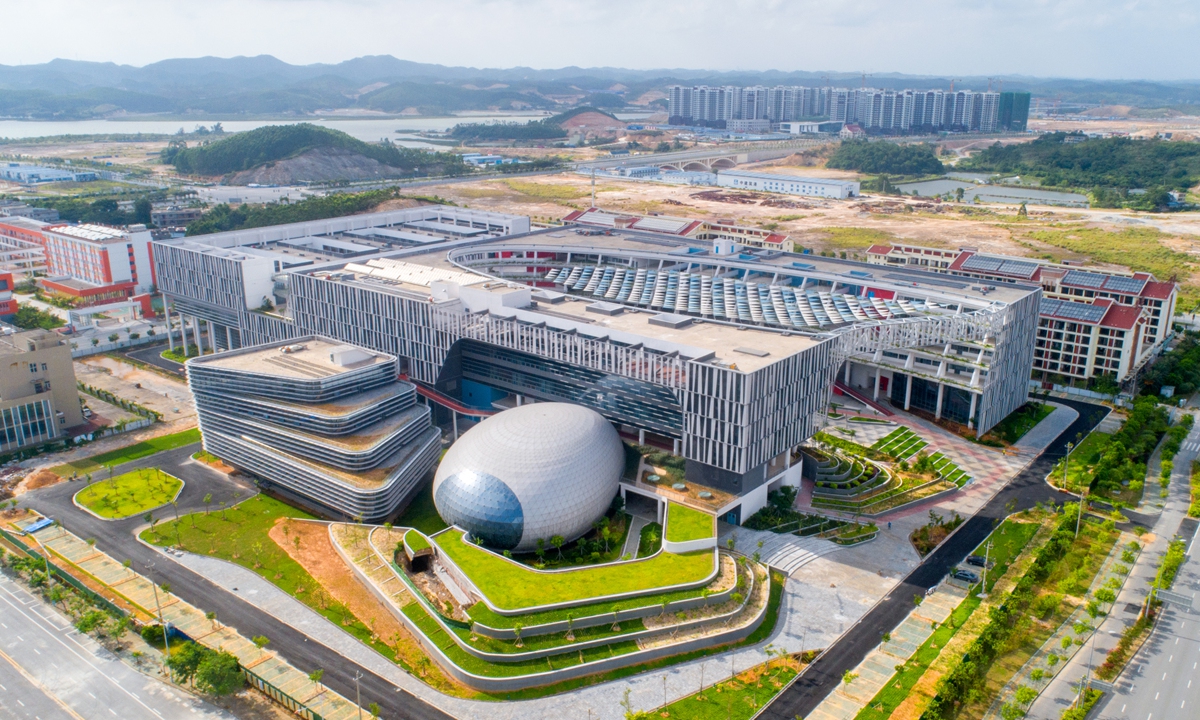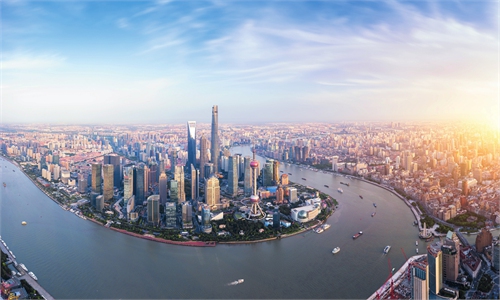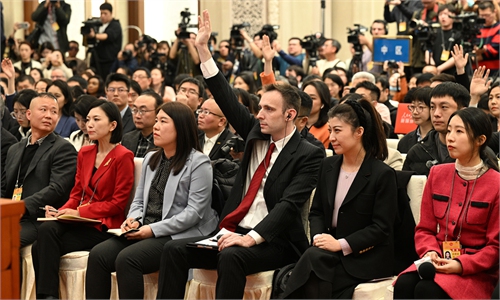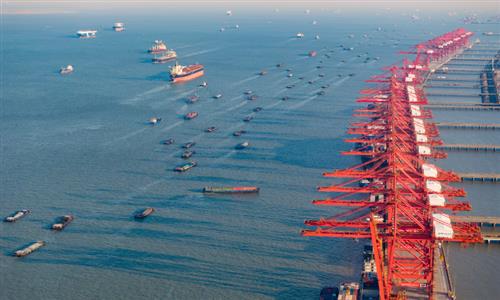
China-Malaysia Qinzhou Industrial Park Photo: VCG
Editor's Note:China's annual two sessions have begun this week. This critical series of meetings in spring is vital to defining China's approach to economic, political and foreign policy issues for the whole year. It also offers observers a window into the latest ideas and practices of China's development in various aspects, including the whole-process people's democracy, high-quality development, Chinese modernization and the wisdom the country provides to global governance.
In the sixth piece of the series "Two sessions inspirations," Dato' Joseph Lim (Lim), Vice President of Malaysia-China Chamber of Commerce, shared his insights with Global Times (GT) reporter Su Yaxuan, saying that when the Western countries truly understand China, they will realize that Chinese leaders are resolute in making policies and will see them through to the end.
GT: How do you view the significance of China's National People's Congress (NPC) and the Chinese People's Political Consultative Conference (CPPCC) to China and the world?
Lim: I am most concerned about the development and economic transformation aspects of the two sessions. According to the current state of China's business landscape and production capacity, I look forward to seeing more export-friendly policies. In terms of export policies, the area of new energy vehicles is particularly worth paying attention to. We are very clear that the competition in China's domestic economic development is fierce. In such a competitive environment, developing overseas markets will be an important issue.
Second, China is already the world's second-largest economy, so any decisions made during the two sessions will not only affect China but also impact regional and even global economic development.
GT: What is your opinion on China's pursuit of high-quality economic development? How do you interpret its connotations?
Lim: As a businessman who has been doing business in China for over 20 years, I have seen China continuously improving and strengthening its financial system. Globally, the financial systems of any country need continuous development. Under high-quality development, strengthening the financial system is key to development.
Second, China's intelligent manufacturing. Intelligent manufacturing has always been my focus, and I have noticed that China has made progress in the development of high-tech industries. ASEAN countries are very aware of China's strength, and although European and American countries have their own political considerations and biases, Malaysia views China from a neutral perspective. China has been Malaysia's largest trading partner for 15 consecutive years, and Malaysia will definitely respect this important trading partner.

Dato' Joseph Lim Photo: Courtesy of Lim
GT: You have praised cooperation between Chinese and Malaysian enterprises for achieving true mutual benefit and win-win results. Could you please provide some examples?Lim: I attended training on the Belt and Road Initiative (BRI) in China in 2015. After returning to Malaysia, I organized over 100 forums about the BRI and roundtable meetings in Chinese, English, and Malay through my think tank. We also established the BRI mobile center outside of China to promote a better understanding of the BRI among our country and other countries.
We have tracked some China-Malaysia cooperation projects and found that Chinese companies employ many local Malaysian employees. When these employees lack technical expertise, Chinese companies will train them at their bases in China. I believe this fully demonstrates that Chinese investments overseas are not just about projects but also about strengthening the skills of local workers.
Another example is the "most beautiful viaduct in Kuala Lumpur" - SUKE, which is a Malaysian highway project constructed by China Harbour Engineering Company. Malaysia has never had this kind of viadu ct before, and it has changed the way Malaysians view highways. This viaduct has improved traffic flow in Kuala Lumpur.
GT: As a businessman who has been doing business in China for over 20 years, how do you view the constant negative rhetoric targeting the Chinese economy by the West, such as the "Chinese economic collapse" theory?
Lim: I completely disagree with these statements. The West is currently retrogressing. When China's economy and production capacity were relatively closed, Western countries advocated for equal and free trade worldwide. At that time, they criticized China's "closed economy." However, as China gradually opened up and expanded, they changed their tune. Now, the American and European economic models are narrowing down, focusing only on trading with allies and implementing protectionist policies. This is unacceptable in today's free-trade market. The world should be about fair competition and openness, not everyone closing their doors and working in isolation.
Western countries, such as the US, often raise issues of "national security." But is it wrong for us to use the iPhone and iPad now? I think this argument is unreasonable.
I have witnessed the transformation of some cities in China over the past 20 years. For example, Nanning, a city located in Guangxi Zhuang Autonomous Region in the south of China, is completely different compared to 20 years ago. We can clearly see how policies can change a city. Since Nanning became the venue for the China-ASEAN Expo, it has driven the development of the entire city over the past 20 years. Through Nanning, Malaysian businessmen have been able to connect with more cities in Guangxi, such as Qinzhou. Qinzhou now has a China-Malaysia Qinzhou Industrial Park, with some companies settling in and developing.
The so-called "Chinese economic collapse "put forward by Western countries is completely incorrect, as they do not truly understand China. When they truly understand China and the two sessions, they will realize that Chinese leaders are resolute in making policies and will see them through to the end. This kind of determination is not necessarily present in Western countries.
Over the past few years, the world economy may have been facing some challenges, but as I mentioned, China can assist other developing countries through capacity output, not only Malaysia, not only Southeast Asia, but developing countries, including African countries. China is sharing its experiences and genuinely helping the development of third-world countries.
GT: China has long been a driving force behind the world economic recovery, will this momentum continue in 2024? Do you have confidence in this prospect?
Lim: I am very optimistic about China's role in driving global economic recovery, especially for developing countries. China not only talks the talk but also walks the walk, using projects to drive and develop local economies. Western countries often give advice but struggle to truly engage in local development projects in other countries. Therefore, I believe that China plays a very important role in driving the world economy.



